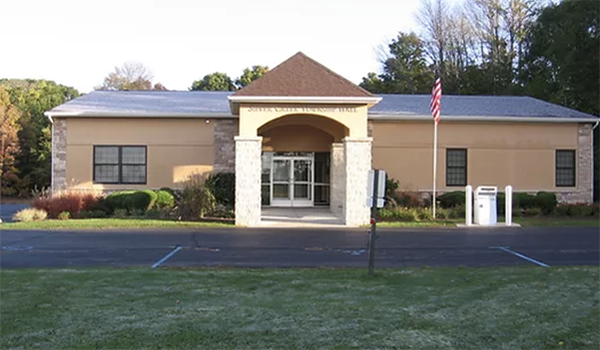Berrien County commissioners discuss staffing, budget
Published 2:43 pm Thursday, November 10, 2022
|
Getting your Trinity Audio player ready...
|
ST. JOSEPH — Filling vacancies in county government continues to be a major issue for Berrien County Commissioners. Commissioners addressed that issue and others at Thursday’s Board of Commissioners meeting.
County Commissioner James Martin was the first to bring up the topic. He questioned why the county is paying so much to outside engineering firms instead of hiring engineers to work directly for the county.
He noted that the county has spent $550,000 in recent months alone for road department engineering work. “I think we need to try something to have it done in house,” he said. “We would still save money if we paid in-house engineers 25 percent more, that would be more fiscally prudent.”
Martin later was the sole no vote on approving the county’s new 2023 budget. He said he didn’t feel it properly addressed the needs of county employees or how money should be spent.
The new 2023 budget calls for $179 million in revenue and $184 million in expenditures, with $5.3 million being taken from reserves. The general fund budget within the overall budget will be balanced with nearly $68.2 million in revenue and expenditures.
Other commissioners and County Administrator Brian Dissette painted a different picture of the county’s employment situation.
County Commissioner and Administration Committee Chair Jim Curran noted for example that the Trial Court has hired six new people recently. He added that the Berrien County Juvenile Center is also hiring new people.
Dissette said that while the county still has vacancies to fill, progress has been made. He pointed out that the road department has been able to hire six new people with the county paying for them to get their CDL training and license.
“Our past practice was to require experience and a CDL certification,” he said. “Now we’re taking a chance on new people. We will pay for their certification if they stay with us for two years. If they leave before that, they will reimburse the county.”
“We are trying to be creative,” he added. “We had 80 vacancies six months ago and that number is down to 59 now. We are getting creative, we’re actively recruiting at trade shows and at area colleges.”
County Board Chairman McKinley Elliott noted after Dissette’s comments that Dissette himself started with the county as an intern 20 years ago. Dissette went on to have other jobs in the area before coming back to the county in 2020 when he was hired as the county administrator.
Dissette’s comments came after remarks by resident Adolph Peltzer. He said the county needs to start hiring people who don’t necessarily have job experience. “Everyone wants one or two years of experience and where are people going to get it?” he asked. “We need to have a program like student teaching or internships.”
People can get an idea of the extent of the county’s employee vacancy problem by looking at the job postings on the county’s website. The postings this week show 30 pages of job descriptions and openings.
In other news, Curran reported to fellow commissioners that he has resigned as the Niles Township Supervisor. “I thought there might be conflicts but I didn’t think they would come up in the first two weeks,” he said. “I submitted my letter of resignation to the township, now I’m just a county commissioner like the rest of you.”
At the Committee of the Whole meeting prior to the regular board meeting, commissioners heard from Dr. Joyce deJong from the Western Michigan School of Medicine. They have served as the county’s medical examiner since 2019 and the contract is expected to be extended in coming months.
DeJong said the School of Medicine provides medical examiner services for 13 counties in Michigan. She said they do more than just autopsies, they also authorize cremation permits and conduct reviews of child and elderly deaths.
She reported that Berrien County saw the biggest increase in the number of deaths from 2019 to 2020 and then a slightly smaller increase from 2020 to 2021. “We’re hoping that we will see that level off and drop back to pre-pandemic levels,” she said.
She said the increase was not only a matter of people not getting the medical care they needed during the pandemic but also the high number of drug related deaths due mainly to opioids.







